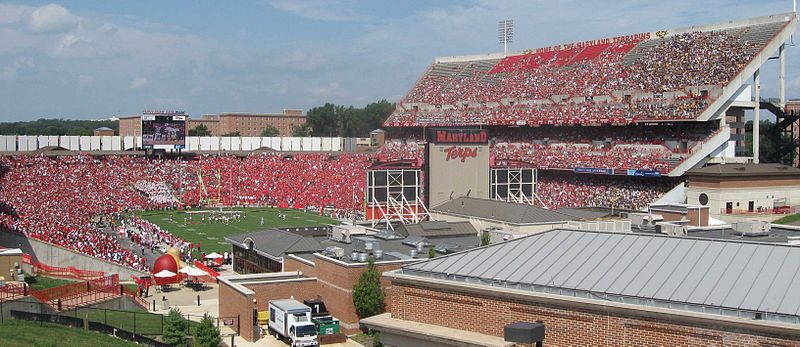Last week, the University System of Maryland Board of Regents officially changed the name of the football stadium from Byrd Stadium to Maryland Stadium. The change ended months of heated debate — at least temporarily — over the honoring of former university President and Athletic Director Harry Clifton “Curley” Byrd, an accomplished administrator but also a notorious racist and segregation advocate. The change comes as universities and governments across the country have faced criticism for naming events, buildings and ships after individuals who were slave owners or openly racist.
But Byrd Stadium was not the only place on the campus named after a segregation advocate and racist — or even a slaveholder. One of this state’s founding families, the Calverts, were slaveholders. Charles Calvert, the third Lord Baltimore, is the namesake of both Charles County and Charles Hall on this very campus. He led the charge to enslave this state’s black indentured servants in 1664.
Francis Scott Key, writer of “The Star-Spangled Banner” and namesake of a university building, was a slave owner and advocate for slave owners. John Eager Howard was a Revolutionary War hero, governor, U.S. representative and U.S. senator. Yet he too was a slaveholder in this state — and his name is preserved in Howard County and Howard Hall on the campus.
I’m sure these aren’t the only examples of people with checkered pasts being honored on this campus — or elsewhere. Some people probably harbored racist and sexist views, denied the vote to certain groups, discriminated against immigrants or didn’t support same-sex marriage. George Washington, a national hero and our nation’s first president, was a slave owner — and he has more honors than anyone can count, including the capital city and an entire state named after him. Franklin Delano Roosevelt put an entire ethnic population into prison camps during World War II. Mohandas Gandhi, a legendary figure for justice, regarded South African blacks as an inferior race.
This state’s name comes from a queen who helped rule over a global empire that committed countless atrocities. Future generations might even judge our current leaders as “uncivilized” and “evil” for things we allow to happen today.
So what do we do? Rename many of our buildings, schools, cities and states? Do we ignore the accomplishments or injustices perpetrated by our forebearers?
It depends.
I should write another column questioning why we honor individuals at all. But assuming we want to continue to do so, it’s fair to say that we honor them for their contributions to society and hold them up as some example to aspire to, if only in part. It allows us to remember who great contributors were and celebrate what they accomplished for society — benefits that we all reap today.
Naming an institution after a person is a designation of honor. It’s not a complete endorsement of all their thoughts and actions, but it does recognize the person’s accomplishments as being positive for the society. And it’s up to us in society to weigh the good with the bad when honoring and recognizing important people in our past.
We must also view individuals in the context of their time. Few exceptional individuals have been able to hold views — and accomplish significant social progress and outcomes — that varied greatly from the consensus of the time. Just as doctors and psychologists know far more about their sciences today than in centuries prior, today’s leaders have been able to learn from the shortcomings of our predecessors, yet rely on the very accomplishments of our forebears to build a greater society. We must seek out more individuals whose contributions to society have been missed — and who have set positive examples for its members.
Finally, we must see the whole of a person. Don’t hide the faults and evils perpetrated. If we identify the sins, flaws and triumphs of our past, society doesn’t have to reinvent the wheel and learn valuable lessons for the future. Renaming Byrd Stadium was the right decision, but let’s not forget the flaws in many of our honored leaders.
Matt Dragonette, opinion editor, is a senior government and politics and finance major. He can be reached at mdragonettedbk@gmail.com.



